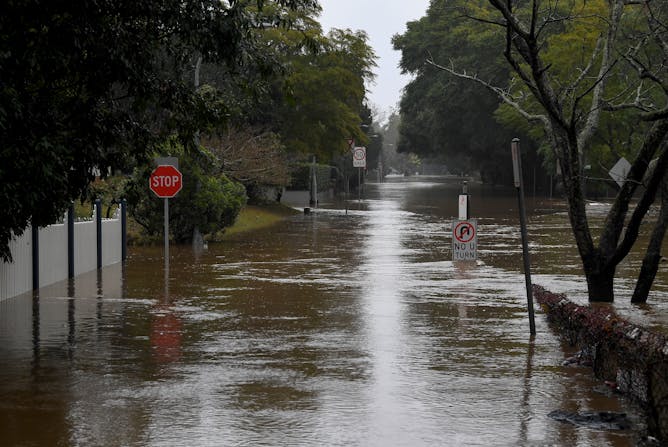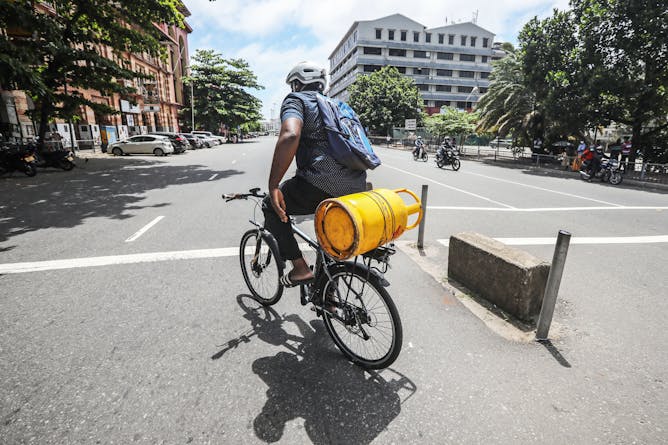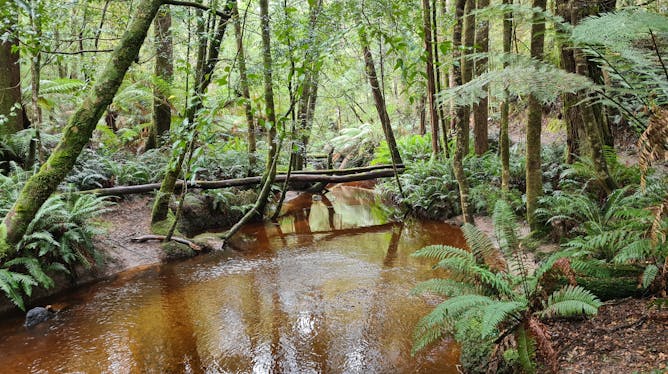|
For the fourth time in two years, parts of New South Wales are flooding. And once again, people are asking why so many houses were allowed to be built on flood-prone areas.
As Brian Cook and Tim Werner write, developers have strong financial incentives to build on cheaper flood-prone land. Home buyers are drawn to live by the water, and may overlook flood risk in exchange for cheaper housing. And perversely, flood mitigation efforts can make people feel secure when in fact, engineering solutions ward off smaller floods but can do nothing to stop the big ones.
What’s the solution?
A key first step: harden the boundaries of flood-prone areas. If authorities have the appetite, a big step would be to make developers retain liability for floods. That could make many think twice about encroaching on floodplains.
|

|
Doug Hendrie
Deputy editor, Environment & Energy
|
|

Brian Robert Cook, The University of Melbourne; Tim Werner, The University of Melbourne
People feel more secure knowing there’s a levee nearby - but this can backfire, leading to more development on floodplains. Australia needs to tackle the incentives behind these risky developments.
|

Adrian Esterman, University of South Australia
BA.4 and BA.5 are more transmissible than previous variants and subvariants, and are better able to evade immunity from vaccines and previous infections. Here’s what we know about them so far.
|

Niro Kandasamy, University of Sydney
As authorities desperately seek aid, the Sri Lankan crisis continues.
|

Murray Goot, Macquarie University
The census’s much-discussed “average Australian” has shaky foundations
|

Michael David Barbezat, Australian Catholic University
The latest season of Stranger Things features a town in the grip of a ‘Satanic Panic’. This reflects the very fears that existed in 1980s America, which still exist in different forms today.
|

David Peetz, Griffith University
Uber Australia’s deal with the transport workers union signals the Albanese government won’t mess about with attempts to reclassify gig workers as employees.
|

Christopher Pollard, Deakin University
Marx’s thought was groundbreaking.His primary interest wasn’t simply capitalism. It was human existence and our potential.
|

Kate Dooley, The University of Melbourne; Zebedee Nicholls, The University of Melbourne
New research finds nature restoration only marginally lowers global warming. This pours cold water on the idea of using carbon offsets to solve the climate crisis.
|
|
|
Health + Medicine
|
-
Nina Lansbury, The University of Queensland; Minnie King, The University of Queensland
The Queensland government’s announcement this month of free period care products for state schools is laudable. But have they considered reusable alternatives, or remote and Indigenous students?
|
|
Environment + Energy
|
-
Elodie Camprasse, Deakin University
Spider crabs form huge underwater piles, some as tall as a person. These fascinating crustaceans are on a risky mission – to get bigger.
|
|
Arts + Culture
|
-
Paul Rae, The University of Melbourne
The legendary British theatre director Peter Brook died on Saturday, age 97. His clarifying focus on what really matters in theatre can be felt across the spectrum of contemporary theatre.
|
|
Books + Ideas
|
-
David Carlin, RMIT University
Questions of belonging inform a new collection of lyrical, meditative essays that interrogate the distinction between nature and culture.
|
|
| |
|
|
|
Cranlana Centre for Ethical Leadership at Monash University
Melbourne VIC, Australia
•
Full Time
|

|
|
Auckland University of Technology
Auckland, New Zealand
•
Full Time
|

|
|
Auckland University of Technology
Auckland, New Zealand
•
Full Time
|

|
|
Bond University
Gold Coast QLD, Australia
•
Full Time
|

|
|
|
|
| |
| |

|
| |
| |
| |
Featured Events, Courses & Podcasts
|
View all
|
|
7 October 2021 - 7 October 2026
•
|

|
25 November 2021 - 25 November 2024
•
|

|
14 - 15 July 2022
•
Caulfield East
|

|
|
|

|
|
|
|
| |
| |
| |
| |
| |
|
|